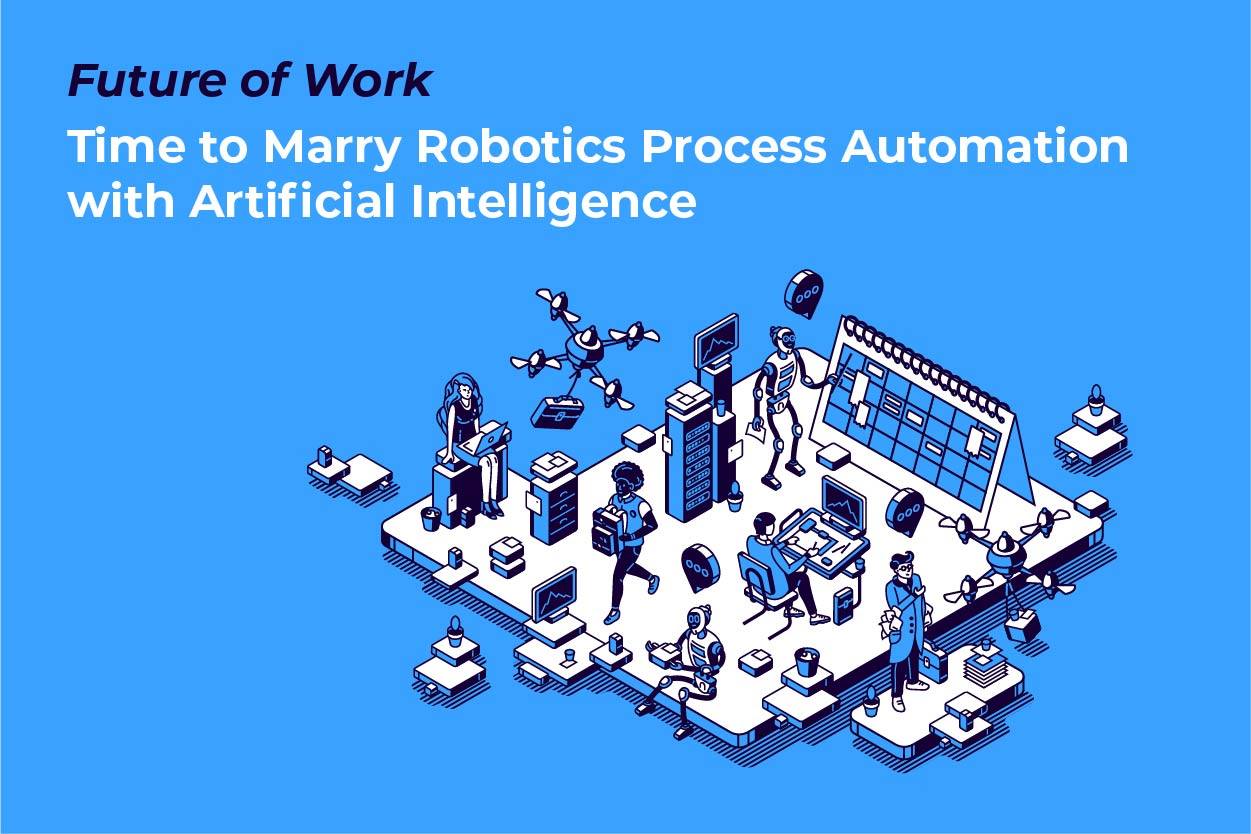
"George Harrison famously said that the Beatles saved the world from boredom. RPA does that for the workplace." - RT Insights (2018)
It's little wonder that robotics process automation (RPA) is rapidly gaining traction. The concept is simple, a "software robot" imitates human actions. RPA makes it faster, cheaper, and more efficient to handle repetitive tasks from processing invoices to onboarding new customers. According to a report from ISG, 92 percent of companies are planning to adopt this emerging technology by 2020 to increase operational efficiencies.
The thing is, RPA is not a silver bullet. When a variation is introduced, rule-based software bots won't be able to adapt. They won't be able to handle unstructured data such as emails, audio files and spreadsheets, which account for up to 90 percent of information generated within a business. While RPA tools have done wonders in eliminating tedious tasks and freeing manpower for higher-valued, creative work activities, more and more users are asking: "Can they do more?"
RPA +AI = IA: Match Made in Heaven
Apparently, RPA was designed to mimic activities carried out by humans, but it seems that businesses are looking beyond to technologies that could mimic human intelligence. That is, those that enable machines to judge, analyse, make decisions, and learn on the go like a human. Those that could deliver greater value for businesses than short-term cost savings and increased productivity.
Many believe that blending RPA with artificial intelligence and its associated technologies into what they call "intelligent automation" will address this new demand. Here are three main reasons why:
- First of all, IA harnesses and integrates cognitive technologies such as Natural Language Processing (NLP), Machine Learning (ML), and other AI technologies with RPA to improve business automation -- from a rule-based approach to data-driven approach. It enables data robots to develop new skills, make judgements and provide feedback. Eventually, automation evolves from "doing" to "learning" and thinking".
- Secondly, IA automatically translates unstructured information into structured datasets. This not only helps increase the efficiency and accuracy of automated processes but also creates endless opportunities for business optimisation. A wide range of AI technologies could be adopted to make this happen. For instance, speech-to-text capabilities help convert audio speech into searchable text. NLP tools make sure systems "understand" the meaning of content. ML models can be applied to analyse and learn from that data, enabling businesses to make better-informed decisions.
- Last but not least, IA helps improve business outcomes significantly and sustainably. Everest Research Group found that IA delivers cost reductions, improves employee engagements, and ensure adherence to quality and compliance better than traditional automation. Also, because it frees employees from tedious tasks, wellbeing, and mental health improvements follow. These are business impacts that make IA adoption worthwhile.
Looking forward
The market for AI-driven intelligent automation is still nascent. However, digital-led businesses around the world are betting big on this emerging technology, expected to spend a whopping US$232 billion by 2025, compared to an estimated US$12.4 billion today. Businesses across domains already leveraged IA for assorted purposes, from real-time customer services, fraud detection, to market forecasting. The list goes on as technologies evolve, and more and people are empowered to think, create, and innovate.
Will intelligent automation destroys jobs, you ask? The answer is no. More likely, it will transform them.
Interested in more technology articles? Click here to learn more!
References
- RPA is creating a billion-dollar industry when no one is looking (RT Insights, 2018) [Link]
- Nine in 10 businesses to implement RPA by 2020 (Technology Magazine, 2020) [Link]
- 90 percent of the Big Data we generate is an unstructured mess (PC Mag, 2018) [Link]
- The vast world of intelligent automation (KPMG, 2020) [Link]






























